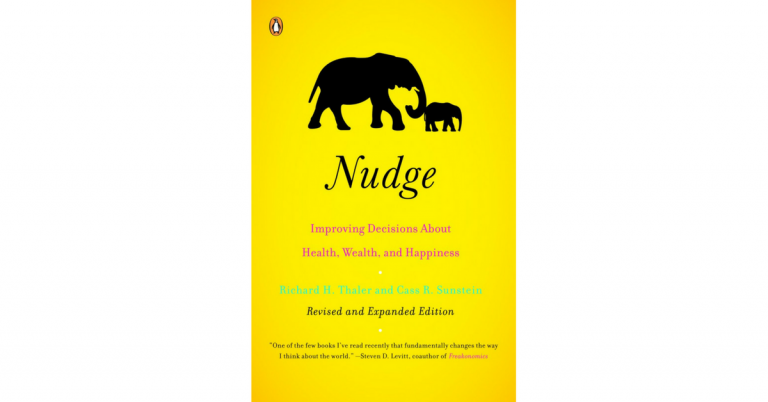
Book Review: Nudge: Improving Decisions About Health, Wealth, and Happiness by Richard H. Thaler and Cass R. Sunstein
Nudge is a book for people who want to help –but not force– others to make better decisions.
I first learned of this book when Daniel Kahneman raved about it in Thinking Fast and Slow. I was looking forward to Nudge and was not disappointed. I recommend it to anyone who might be presenting choices to others, and therefore affecting those choices.
Nudge is about choice architecture: the ways that various factors in how a choice is presented may affect the decisions made by the chooser.
The heart of the book can be summarized through a clever (if imperfect) mnemonic device: NUDGES.
- iNcentives (pricing and more: bonuses that can be offered, and even penalties)
- Understandable options (or as the authors say “Understand mappings”)
- Defaults (they are often taken, so make the default the best choice)
- Give feedback (it helps improve the quality of decisions)
- Expect error (and help people recover from it)
- Structure complex choices (a small number of choices at a time)
By using NUDGES, choice architects can be more effective at helping people to make better choices. For many excellent examples, from placement of food items in a cafeteria to software that makes you delay sending emails to that seem to be uncivil, read Nudge.